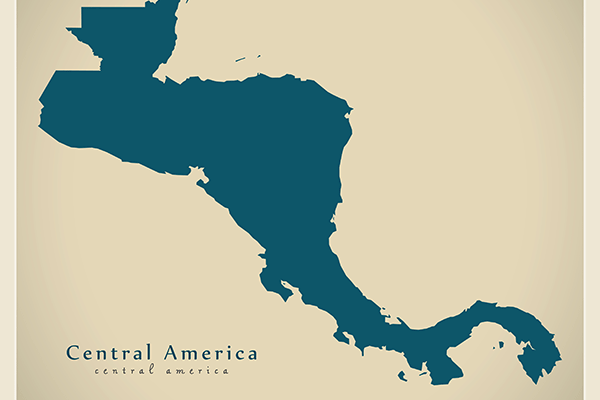
Promoting economic opportunity in northern Central America to address the root causes of migration is the focus of the Partnership for Central America (PCA), an independent, nongovernmental organization.
Since launching in May 2021, the PCA has supported the Call to Action for Central America announced by Vice President Kamala Harris and has worked with businesses and social enterprises to make new, significant commitments to the economic health of the region.
In support of the Call to Action, the PCA works closely with the U.S. Department of State. The initiative sponsored by the U.S. Vice President is to foster economic development in the three Central American countries of Guatemala, Honduras and El Salvador.
The PCA is a coalition of private sector organizations mobilizing long-term investments and coordinating critical programs to advance economic opportunity and address urgent climate, education and health challenges in Central America.
Support for Private Sector
The partnership supports private sector entities through key actions:
Mobilize Investments
The partnership helps organizations identify strategic growth opportunities and navigate a path to invest in Central America in support of both business growth strategies and environmental, social and governance investment strategies.
Coordinate Public-Private Partnership
The PCA facilitates public-private partnerships across six program areas to maximize business and social impact:
• Financial inclusion. Improve access to banking services, while prioritizing women and vulnerable communities.
• Digital access. Expand internet access with a focus on rural communities.
• Climate resilience. Shift agricultural practices to resilience, sustainability, and yield
• Health. Increase primary access with a focus on women, youth, and indigenous populations.
• Education. Implement a workforce training program to create job readiness.
• Gender equity. Translate private-sector commitments and public-sector backing into sustainable change for over 500,000 women, including their families, in the Northern Triangle.
Convene
The partnership convenes public forums and facilitates discussions on challenges, trends, and progress toward aspired social impact goals to increase visibility and engagement on shared objectives.
Partnership for Central America
The partnership is a 501(c)(3) nonprofit organization that conducts outreach and engagement with companies and organizations in support of the Vice President’s Call to Action.
As an independent nonprofit, the partnership also works with companies and institutions that want to collaborate to develop and implement solutions to the economic, social and governance challenges in Central America, and to align with efforts of government and private sector partners in the United States and across the Central American region.
Call to Action
On December 13, 2021 the U.S. Chamber of Commerce, in partnership with the U.S. Department of State, and in collaboration with the Partnership for Central America and the Office of the Vice President, hosted a virtual forum that brought together the White House, officials from the principal agencies involved in the U.S. government’s Call to Action, the Partnership for Central America, and business leaders (including the California Chamber of Commerce) to discuss strategy and objectives for addressing the root causes of migration in Central America. Additionally, participants had the opportunity to learn how they can join the Call to Action.
Speakers included:
• Myron Brilliant, executive vice president and head of the International Affairs Division, U.S. Chamber of Commerce. Brilliant emphasized that active participation and leadership from the U.S. private sector, the advancement of regional trade agreements like the U.S.-Dominican Republic/Central America Free Trade Agreement (US-DR-CAFTA), and adherence to the rule of law would increase investments and prosperity in the region.
• Ambassador Brian Nichols, assistant secretary for the Western Hemisphere, U.S. Department of State, who outlined U.S. strategic priorities in Central America.
• Jonathan Fantini Porter, executive director, Partnership for Central America, who described how the PCA is strengthening strategic collaborations across the public and private sectors to spur economic growth across northern Central America.
• Vice President Harris gave the keynote address and call to action. She announced $540 million in private investments in Central America as a part of the administration’s plan to reduce migration from the area by improving local conditions.
US-DR-CAFTA
President George W. Bush signed the CalChamber-supported US-DR-CAFTA on August 2, 2005, giving final U.S. approval of the agreement.
The United States and the six DR-CAFTA countries share roughly $50.98 billion in total (two-way) trade in goods. U.S. goods exports to DR-CAFTA totaled $27.25 billion in 2020. Leading U.S. exports include petroleum, food manufactures, computer and electronic products, and chemicals.
Leading U.S. imports include apparel products, agricultural products, manufactured commodities, and food manufactures.
The United States is the main supplier of goods and services to DR-CAFTA economies. More than 40% of total goods exports to Central America come from the United States.
California exports to the DR-CAFTA market topped $1.82 billion in 2020. California imported more than $2.28 billion from DR-CAFTA in 2020.
CalChamber Position
The California Chamber, in keeping with long-standing policy, enthusiastically supports free trade worldwide, expansion of international trade and investment, fair and equitable market access for California products abroad and elimination of disincentives that impede the international competitiveness of California business.
Multilateral, sectoral and regional trade agreements ensure that the United States may continue to gain access to world markets, resulting in an improved economy and additional employment of Americans.
Free trade agreements contribute to stronger economies, the rule of law, sustainable development, and more accountable institutions of governance, complementing ongoing domestic, bilateral, and multilateral efforts in a region.
The US-DR-CAFTA is an element of the U.S. strategy to liberalize trade through multilateral, regional and bilateral initiatives. The US-DR-CAFTA increases momentum toward lowering trade barriers and sets a positive example for other small economies in the Western Hemisphere.

